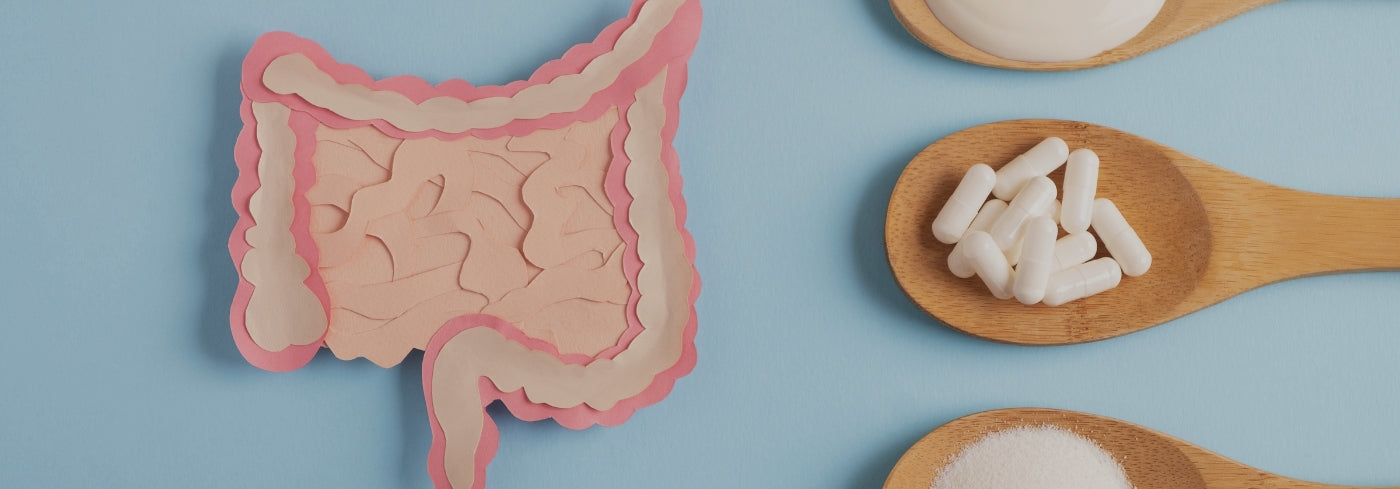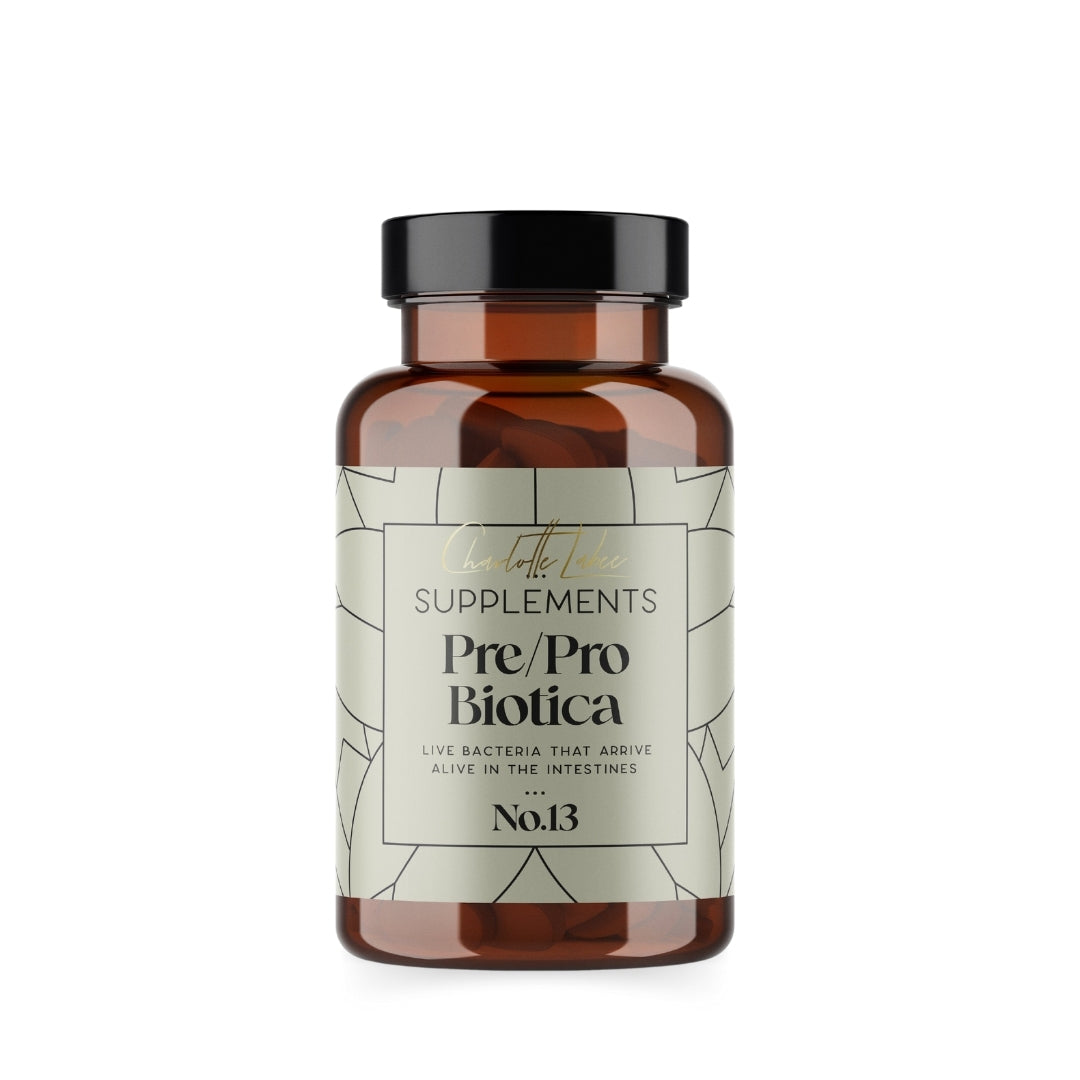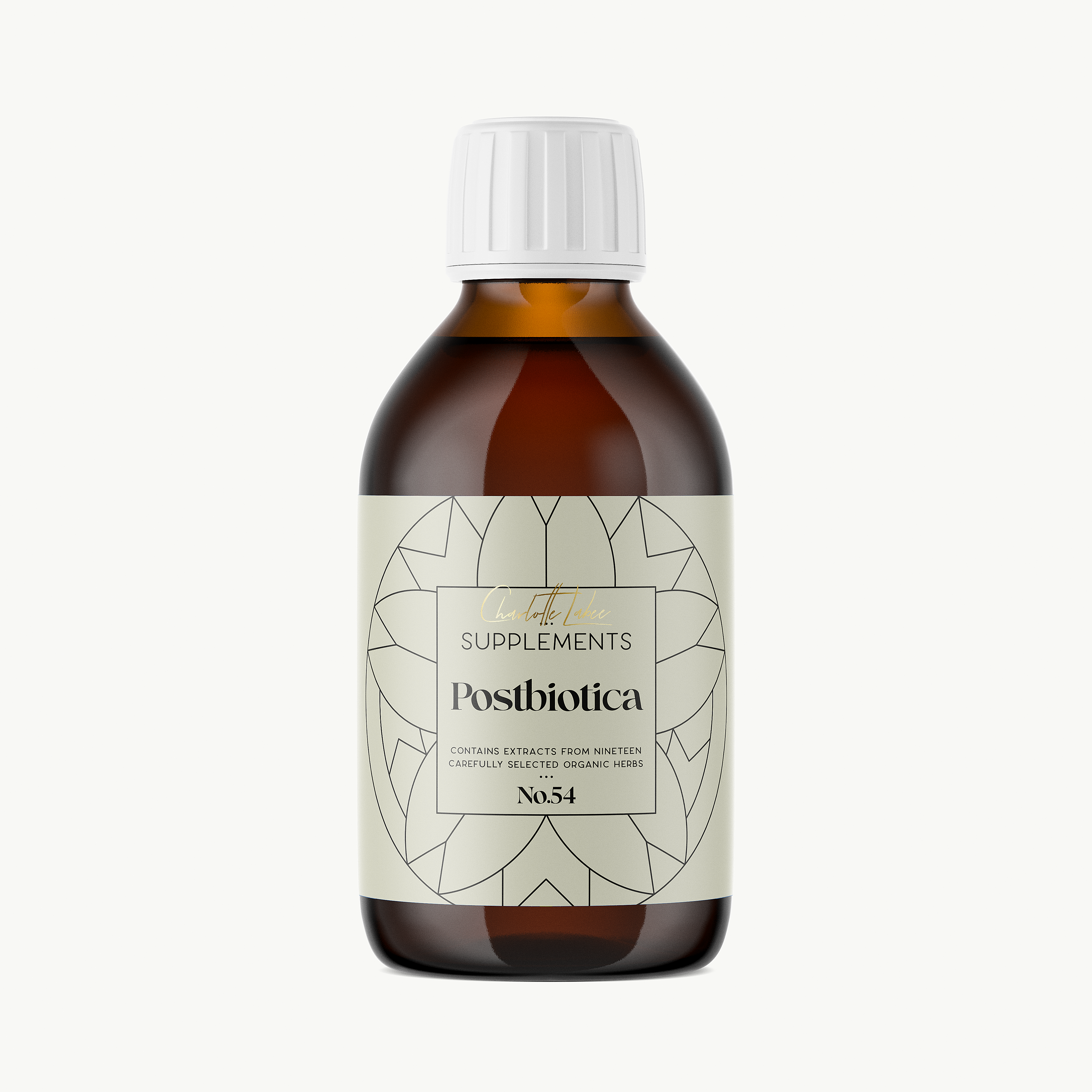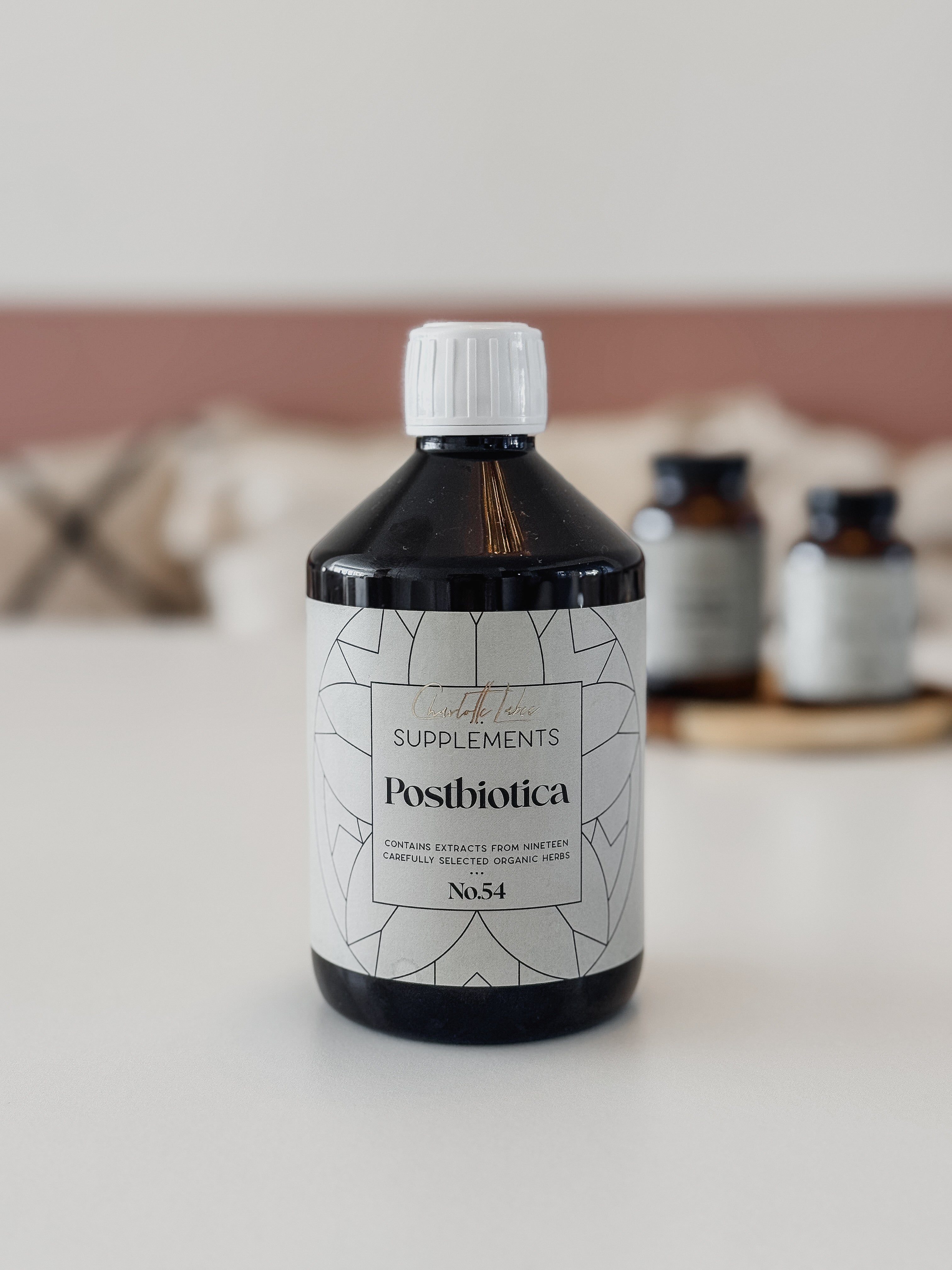Darmen

Het belang van darmgezondheid
De darmen spelen een cruciale rol in onze algehele gezondheid. Zo regelen ze de spijsvertering en opname van voedingsstoffen, wat direct invloed heeft op onze energie, groei en herstel. Bovendien huist in de darmen een groot deel van ons immuunsysteem; een gezonde darmflora helpt daarom bij het bestrijden van ziekteverwekkers en het afvoeren van toxinen.
De darmflora heeft ook invloed op de hersenfunctie via de darm-hersenas. Onze darmen en brein wisselen constant informatie uit en disbalans in de darmen zorgt voor disbalans in de mentale gezondheid. Zo is er een link gelegd tussen darmproblemen en een verhoogt risico op stress, angststoornissen en depressie.
Verstoring in de darmgezondheid worden ook in verband gebracht met diverse chronische ziekten, zoals diabetes, hartziekten en auto-immuunziekten. Als laatste staan de darmen in verbinding met de gezondheid van onze huid en mond.
Klachten van disbalans in de darmen
Disbalans in de darmflora kan leiden tot veel verschillende klachten, omdat de darmen zoveel invloed hebben op de rest van de gezondheid. Veelvoorkomende symptomen zijn spijsverteringsproblemen zoals opgeblazen gevoel, winderigheid, buikpijn, diarree of obstipatie. Daarnaast kunnen vermoeidheid, een slecht humeur, en concentratieproblemen optreden, aangezien de darm-hersenas invloed heeft op de hersenfunctie en stemming. Huidproblemen zoals acne, eczeem, of uitslag kunnen ook tekenen zijn van een verstoorde darmgezondheid.
Verder kunnen regelmatige infecties of een verzwakt immuunsysteem wijzen op problemen in de darmflora, aangezien een groot deel van het immuunsysteem zich in de darmen bevindt. In het geval van een prikkelbare darm is dit vaak geen chronische aandoening, maar komen de klachten voort uit ontstane disbalans. Als je veel van deze klachten bij jezelf herkent, dan is het zeker verstandig om je te verdiepen in de mogelijke oorzaken van de disbalans en welke dieet- en leefstijlaanpassingen en supplementen hierbij zouden kunnen helpen.
Voeding en darmgezondheid
In onze darmen bevindt zich het darmmicrobioom, een complexe samenstelling van bacteriën en micro-organismen die helpen bij onder andere de voedselvertering, voedingsstofopname en bescherming van de darmwand. Deze bacteriën moeten gevoed worden. Veel mensen krijgen niet genoeg verschillende voedingsstoffen binnen, waardoor het darmmicrobioom minder divers wordt. Ook medicatie, suiker, alcohol en algehele leefstijl dragen bij aan de gezondheid van dit microbioom en de darmen. Met name antibiotica vormt een gevaar: dit medicijn verkleint namelijk de hoeveelheid bacteriën in het lichaam, óók de goede bacteriën in de darm. Deze moeten dan weer aangevuld worden met de juiste voedingsstoffen. Gefermenteerd voedsel zoals bijvoorbeeld yoghurt en zuurkool bevat pre- en probiotica: levende micro-organismen die je darmmicrobioom divers en gezond houden.
Er zijn ook supplementen beschikbaar die de darmgezondheid kunnen ondersteunen als aanvulling op een gezond dieet.
Gezonde darmen met Charlotte Labee Supplements
Als je last hebt van klachten zoals spijsverteringsproblemen, vermoeidheid, huidproblemen of een verzwakt immuunsysteem, kunnen de juiste voedingsstoffen helpen om de balans te herstellen. Wij staan klaar om je darmen op ieder vlak te ondersteunen. Zo kun je bij ons je darmgezondheid meten. Darmtherapeut Annefleur legt uit hoe het werkt: “in het onderzoek kunnen we niet alleen zien of er veel goede of slechte bacteriën aanwezig zijn, maar ook welke bacteriestam bij jou bijvoorbeeld overheersend is.” Doe vandaag nog onze gratis persoonlijke adviestest* en ontdek hoe wij je kunnen helpen.
*Eenmalig €15.95, die je terugkrijgt bij aanschaf van supplementen.
FAQ
Welke klachten wijzen op disbalans in de darm?
Klachten die kunnen betekenen dat er disbalans in de darm is, zijn onder andere een opgeblazen gevoel, gasvorming, constipatie, diarree, buikpijn, vermoeidheid, huidproblemen en voedselintoleranties. Bij deze klachten is het verstandig om verder te onderzoeken waar de disbalans vandaan komt en hoe je deze kunt herstellen.
Welke rol speelt voeding in de darmgezondheid?
De bacteriën in de darmen worden gevoed door de voeding die je binnenkrijgt. Gezonde voeding voedt de goede bacteriën, ongezonde voeding als suiker leidt tot een overgroei aan slechte bacteriën en schimmels. Vezels helpen daarnaast om vocht in de darmen te brengen.
Gerelateerde artikelen

Vegan en darmgezondheid: waarom postbiotica passen in een plantaardig dieet
Door Annefleur de Bruijn
Vegan eten is allang meer dan een trend. Steeds meer mensen kiezen bewust voor een plantaardig dieet: uit ethische overwegingen, voor het milieu, of vanwege hun gezondheid. Maar wat betekent...

Fermentatie, bacteriën en metabolieten: zo werken postbiotica écht
Door Annefleur de Bruijn
Postbiotica. Het klinkt misschien als iets futuristisch uit een laboratorium, maar het is verrassend natuurlijk. Sterker nog: je lichaam maakt ze zelf aan. Of beter gezegd: de miljarden bacteriën in...

Hoe werken Postbiotica™ in je lichaam? Een eenvoudige uitleg
Door Charlotte Labee
We horen steeds vaker over postbiotica. Je vindt ze terug in fermentatieprocessen, in de wetenschap rondom darmflora en in steeds meer supplementen, zoals onze eigen Postbiotica™ van Charlotte Labee Supplements....

Prikkelbare Darm Syndroom (PDS): oorzaken, symptomen en behandelopties
Door Annefleur de Bruijn
Het Prikkelbare Darm Syndroom (PDS) is een veelvoorkomende, maar complexe spijsverteringsaandoening die de kwaliteit van leven flink kan beïnvloeden. Mensen met PDS ervaren regelmatig buikpijn, een opgeblazen gevoel en wisselende...

Darm-hersenconnectie: Hoe je darmen invloed hebben op je mentale gezondheid
Door Annefleur de Bruijn
Heb je weleens ‘vlinders in je buik’ gevoeld of een ‘onderbuikgevoel’ gehad? Dat is geen toeval. Je darmen en je brein zijn nauw met elkaar verbonden en communiceren voortdurend. Dit...
Vraag nu jouw gratis supplementenadvies aan!
Krijg een gratis cadeau Bij elke bestelling boven de 150 euro






















